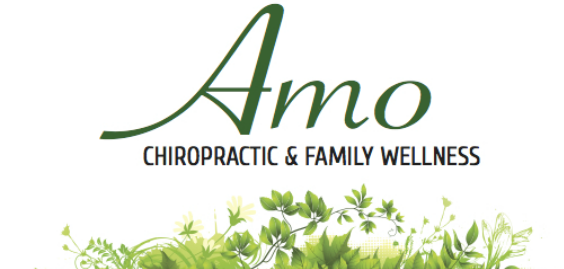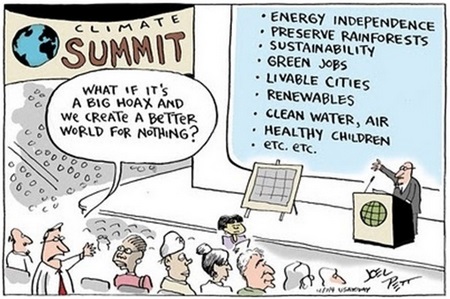(recently published in the LifeLines newspaper)
As chiropractors our major focus is the health of the body; as such it can often be hard to consider the role that we play in ensuring the sustainability of our environment.
Recently, Sheila Donnelly and I attended the Conference on Climate Change in Seattle, Washington. These 2 dayes were filled with presentations from leading scientists and industry professionals who have studied the impacts of climate change on this earth.
My goal in this article is to allow you some insight as to the benefits and importance of considering our relationship with the environment.
To preface this article, when it comes to saving the earth people usually just want the highlights, some just want to know what to do, and others just want to delude themselves into believing they don’t need to do anything. In my experience of American culture, it is predominantly a ‘media created, fear based society’, (war on drugs, war on terror, war on war) all designed to make a paranoid, fear-based state of being. Even the climate change movement has created a lot of fear, causing people to detach from the long-term consequences of our current actions.
Unfortunately, we cannot live in a state of fear in regards to the environment or it would be a gloomy future for us all. We need to be comfortable with a commitment to incorporating meaningful change into our lives. For the most part the “war on the environment” is one that we, as humans, are definitely winning, which needs to change.
To read this article and make it interesting you can skip to whatever section you wish because most people just want to read what they decide is relevant to them anyways.
1. Why does climate change matter to Chiropractors?
2. How does climate change affect our health?
3. What is the path forward?
4. What can we do in our school to make a difference in our health and that of our community?
1. Why does climate change matter to Chiropractors?
Well, I imagine people have started reading this article with a curiosity as to why climate change and sustainability are being talked about in a chiropractic college. Inherently, we realize that the health of our environment affects the health of our body through the chemical, physical and emotional aspects. Within the first 2 hours of the Climate Change conference held in Seattle, all of these issues were covered.
We know that our primary role is the detection and correction of subluxations, but at some point one asks, “why does the subluxation occur.” We believe the cause is through thoughts, toxins, and traumas. Let me rephrase these for you, universal forces such as heat waves (trauma), nutritional deficiency or variants of food (toxins), and emotional well being (thoughts) which is influenced by the serenity of our environment.
Philosophically, we conceive that a Universal Force can be destructive to our body. For instance, heat is a universal force entering our system, how we adapt depends on our body’s ability to cool itself. We are designed to operate at a certain temperature, but as the world warms an increased demand is placed on our system. Not just the average rise in temperature, but an extreme heat wave we are not use to from which is much harder to adapt.
2. How does climate change affect our health? (Physical, mental, social)
Physical health- as the seasons change due to global warming, the degrading of water and food supply occurs creating a larger demand on drought resistant plants. (Can anyone say Genetically Modified?).
Mental health- Do you remember hurricane Katrina? What do you think happened to those people who suffered from posttraumatic stress, depression, anxiety, behavioral disorders, and substance abuse from that experience? These unfortunate events occur after major environmental alterations causing a rise in extreme of weather.
Social- Climate displacement of communities form fire, flood, famine creates stress, which is specifically referred to as Solastalgia. Imagine loosing your home and support network as you are transported from your community and are forced to rebuild in a new area.
Research presented at the conference showed a proportional increase between depression and suicide with heat waves.
3. The way forward
If only it were as easy as going to a waterpark and having an amazing day of fun and joy for all. True social, cultural and behavioral change can only be created by aligning who we are and what we do with what we value. For us that is easy because we value health. We value a higher existence of life and that means valuing the environment in which we live. Hopefully by now you’re starting to see the link.
The science talks about the global average temperature, but not many people really consider themselves a global citizen. We must realize and attach to the notion that we are the top of the food chain and are responsible for what we eat. We are responsible for everything in this world and yet we are not separate from it. We suffer, as all organisms do; yet we have the power to change and limit the suffering for all. We must realize our connection and act accordingly.
Most people have a mindset that acting sustainably is optional, but it’s not. They think of it as a game, either they are playing or not. Yet there is no way to not play this game. You can’t sit on the sideline in a game of saving the planet as everything you do will affect your environment. We are not saying you need to live in a hippy village and eat raw food all the time. The key is to start somewhere.
“Unless the discoveries of ecological science are rapidly translated into meaningful actions they will remain quietly archived while the biosphere degrades.” W.H Schlesinger, Science 2011.
4.What can we do in our school to make a difference in our health and that of our community?
Don’t view it as an “all or nothing” approach, just choose in every moment what you desire and stay true to what you value. Hopefully, you will realize that valuing the environment is an important aspect of your life.
The World Wide Carbon Footprint lists Americans as using 20 metric tons per year. To survive, as a world, that number needs to be reduced to 2 MT/PY.
How do you do that? The following will help:
Things you may not have heard…
- Buy food from local farmers
- Buy food that is not packaged overseas.
- Carpool to school, which is cheaper and better for our world.
- When you get food from bistro put your containers in the RECYCLE bin.
- Reuse your plastic bags and containers. You might be surprised to know you can reuse them, you don’t have to throw away a snap lock bag.
- Take one Napkin instead of a handful.
- Dry your hands with one bit of towel instead of two or three.
- Don’t ask for a receipt if your not going to use it.
- Plant some veggies in your garden, just see what happens, cucumbers are easy.
Things you have heard before but don’t do, or maybe you have and you do:
- Turn off the lights and light a candle, it is more romantic and better for our planet. But not around school, that would be weird.
- Oh wow, no one is watching the TV in the lounge, don’t just walk by, TURN IT OFF!
- Live with more people, you will have less of a carbon footprint and it is cheaper.
- Ride your bike to school, you get the benefit of a healthy body and you help the environment
- Write on your computer instead of paper.
- Ride the Bart into the city.
- Turn of the water when brushing your teeth or even when washing your hands and you are putting on the soap.
- Use a rag instead of paper towels in the kitchen.
- Use “The keeper”. An environmentally friendly way of managing your menstrual cycle.
- Just ask how can I use less products in my daily life, or how can I substitute what I do use with an environmentally friendly option.
Honestly, most of these actually save you money. Just choose one thing and do it, no need to make massive changes just yet. Just one thing and if we all did our one thing there would be an immediate difference in our communities, our environment and our world.
As chiropractors our major focus is the health of the body; as such it can often be hard to consider the role that we play in ensuring the sustainability of our environment.
Recently, Sheila Donnelly and I attended the Conference on Climate Change in Seattle, Washington. These 2 dayes were filled with presentations from leading scientists and industry professionals who have studied the impacts of climate change on this earth.
My goal in this article is to allow you some insight as to the benefits and importance of considering our relationship with the environment.
To preface this article, when it comes to saving the earth people usually just want the highlights, some just want to know what to do, and others just want to delude themselves into believing they don’t need to do anything. In my experience of American culture, it is predominantly a ‘media created, fear based society’, (war on drugs, war on terror, war on war) all designed to make a paranoid, fear-based state of being. Even the climate change movement has created a lot of fear, causing people to detach from the long-term consequences of our current actions.
Unfortunately, we cannot live in a state of fear in regards to the environment or it would be a gloomy future for us all. We need to be comfortable with a commitment to incorporating meaningful change into our lives. For the most part the “war on the environment” is one that we, as humans, are definitely winning, which needs to change.
To read this article and make it interesting you can skip to whatever section you wish because most people just want to read what they decide is relevant to them anyways.
1. Why does climate change matter to Chiropractors?
2. How does climate change affect our health?
3. What is the path forward?
4. What can we do in our school to make a difference in our health and that of our community?
1. Why does climate change matter to Chiropractors?
Well, I imagine people have started reading this article with a curiosity as to why climate change and sustainability are being talked about in a chiropractic college. Inherently, we realize that the health of our environment affects the health of our body through the chemical, physical and emotional aspects. Within the first 2 hours of the Climate Change conference held in Seattle, all of these issues were covered.
We know that our primary role is the detection and correction of subluxations, but at some point one asks, “why does the subluxation occur.” We believe the cause is through thoughts, toxins, and traumas. Let me rephrase these for you, universal forces such as heat waves (trauma), nutritional deficiency or variants of food (toxins), and emotional well being (thoughts) which is influenced by the serenity of our environment.
Philosophically, we conceive that a Universal Force can be destructive to our body. For instance, heat is a universal force entering our system, how we adapt depends on our body’s ability to cool itself. We are designed to operate at a certain temperature, but as the world warms an increased demand is placed on our system. Not just the average rise in temperature, but an extreme heat wave we are not use to from which is much harder to adapt.
2. How does climate change affect our health? (Physical, mental, social)
Physical health- as the seasons change due to global warming, the degrading of water and food supply occurs creating a larger demand on drought resistant plants. (Can anyone say Genetically Modified?).
Mental health- Do you remember hurricane Katrina? What do you think happened to those people who suffered from posttraumatic stress, depression, anxiety, behavioral disorders, and substance abuse from that experience? These unfortunate events occur after major environmental alterations causing a rise in extreme of weather.
Social- Climate displacement of communities form fire, flood, famine creates stress, which is specifically referred to as Solastalgia. Imagine loosing your home and support network as you are transported from your community and are forced to rebuild in a new area.
Research presented at the conference showed a proportional increase between depression and suicide with heat waves.
3. The way forward
If only it were as easy as going to a waterpark and having an amazing day of fun and joy for all. True social, cultural and behavioral change can only be created by aligning who we are and what we do with what we value. For us that is easy because we value health. We value a higher existence of life and that means valuing the environment in which we live. Hopefully by now you’re starting to see the link.
The science talks about the global average temperature, but not many people really consider themselves a global citizen. We must realize and attach to the notion that we are the top of the food chain and are responsible for what we eat. We are responsible for everything in this world and yet we are not separate from it. We suffer, as all organisms do; yet we have the power to change and limit the suffering for all. We must realize our connection and act accordingly.
Most people have a mindset that acting sustainably is optional, but it’s not. They think of it as a game, either they are playing or not. Yet there is no way to not play this game. You can’t sit on the sideline in a game of saving the planet as everything you do will affect your environment. We are not saying you need to live in a hippy village and eat raw food all the time. The key is to start somewhere.
“Unless the discoveries of ecological science are rapidly translated into meaningful actions they will remain quietly archived while the biosphere degrades.” W.H Schlesinger, Science 2011.
4.What can we do in our school to make a difference in our health and that of our community?
Don’t view it as an “all or nothing” approach, just choose in every moment what you desire and stay true to what you value. Hopefully, you will realize that valuing the environment is an important aspect of your life.
The World Wide Carbon Footprint lists Americans as using 20 metric tons per year. To survive, as a world, that number needs to be reduced to 2 MT/PY.
How do you do that? The following will help:
Things you may not have heard…
- Buy food from local farmers
- Buy food that is not packaged overseas.
- Carpool to school, which is cheaper and better for our world.
- When you get food from bistro put your containers in the RECYCLE bin.
- Reuse your plastic bags and containers. You might be surprised to know you can reuse them, you don’t have to throw away a snap lock bag.
- Take one Napkin instead of a handful.
- Dry your hands with one bit of towel instead of two or three.
- Don’t ask for a receipt if your not going to use it.
- Plant some veggies in your garden, just see what happens, cucumbers are easy.
Things you have heard before but don’t do, or maybe you have and you do:
- Turn off the lights and light a candle, it is more romantic and better for our planet. But not around school, that would be weird.
- Oh wow, no one is watching the TV in the lounge, don’t just walk by, TURN IT OFF!
- Live with more people, you will have less of a carbon footprint and it is cheaper.
- Ride your bike to school, you get the benefit of a healthy body and you help the environment
- Write on your computer instead of paper.
- Ride the Bart into the city.
- Turn of the water when brushing your teeth or even when washing your hands and you are putting on the soap.
- Use a rag instead of paper towels in the kitchen.
- Use “The keeper”. An environmentally friendly way of managing your menstrual cycle.
- Just ask how can I use less products in my daily life, or how can I substitute what I do use with an environmentally friendly option.
Honestly, most of these actually save you money. Just choose one thing and do it, no need to make massive changes just yet. Just one thing and if we all did our one thing there would be an immediate difference in our communities, our environment and our world.



 RSS Feed
RSS Feed
